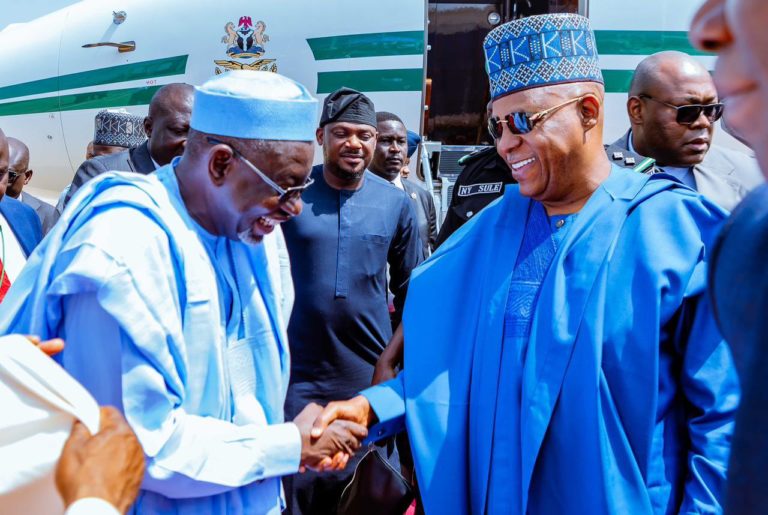President Bola Tinubu has ordered the approval of a ₦150, 000 grant for each business owner in Jigawa State.
This was revealed in a press release by the State House, Abuja, and shared by Vice President Kashim Shettima on his official X handle on Tuesday.
According to the release, Shettima while speaking at the launch of the AI Expertise Blockchain and Technology Training and Outsourcing Initiative in Dutse, said the grant was part of Nigeria’s strategy for digital transformation and leadership in Africa.
Shettima said that Nigeria was not just catching up with the rest of the world, but is poised to overtake them in terms of economy and technology.
The vice president had earlier launched the 4th edition of the Expanded National Micro, Small and Medium Enterprises (MSMEs) Clinic, disclosing that President Bola Tinubu has ordered that a grant of ₦150,000 should be given to each of the business owners in the state, as the Federal Government’s support to MSMEs across the country.
He noted that the ₦150,000 grant is an outright grant that does not require beneficiaries to repay.
This is as the the Senate and the House of Representatives on Tuesday, speedily passed the National Minimum Wage Act 2019 (Amendment Bill).
The bill, which scaled second and third readings at both legislative chambers in the National Assembly, just minutes after it was transmitted by President Bola Tinubu, was instantly passed separately by the red and green chambers.
In a unanimous vote after a clause consideration in the Committee of the Whole, the National Minimum Wage Bill scaled third reading and was passed at the Senate.
The House also passed the bill immediately just like the Senate.
President Tinubu is expected to sign the bill into law.
Earlier, the President transmitted the National Minimum Wage Bill to the National Assembly for consideration and passage.
The President separately wrote the Senate and the House of Representatives requesting expeditious consideration of a bill for an Act to amend the National Minimum Wage Act, 2019 to increase the National Minimum Wage from ₦30,000 to ₦70,000.
The President also asked the lawmakers to reduce the time for periodic review of the national minimum wage from five years to three years and related matters.
Last Thursday, Tinubu and the leadership of the Organised Labour agreed on ₦70,000 as the new minimum wage for Nigerian workers.
The truce between the government and labour sides followed a series of talks between labour leaders and the President in the last few weeks after months of failed talks between labour organs and a tripartite committee on minimum wage constituted by the President in January.
The committee, which comprised state and federal governments and the Organised Private Sector, had proposed ₦62,000 while labour insisted on ₦250,000 as the new minimum wage for workers who currently earn ₦30,000 as minimum wage.
Labour had said ₦30,000 was unsustainable for any worker going by the economic vagaries of inflation and high cost of living which followed the removal of petrol subsidy by the President.
Despite its initial insistence on ₦250,000 as the new minimum wage, Labour accepted the President’s offer of ₦70,000 last Thursday.
The President of the Nigeria Labour Congress (NLC), Joe Ajaero, said Labour accepted ₦70,000 and rejected a proposal by President Bola Tinubu to pay ₦250,000 minimum wage on a condition to increase petrol prices.
He also said Labour agreed to the ₦70,000 offer because the minimum wage would not be reviewed once in five years anymore but once every three years.
